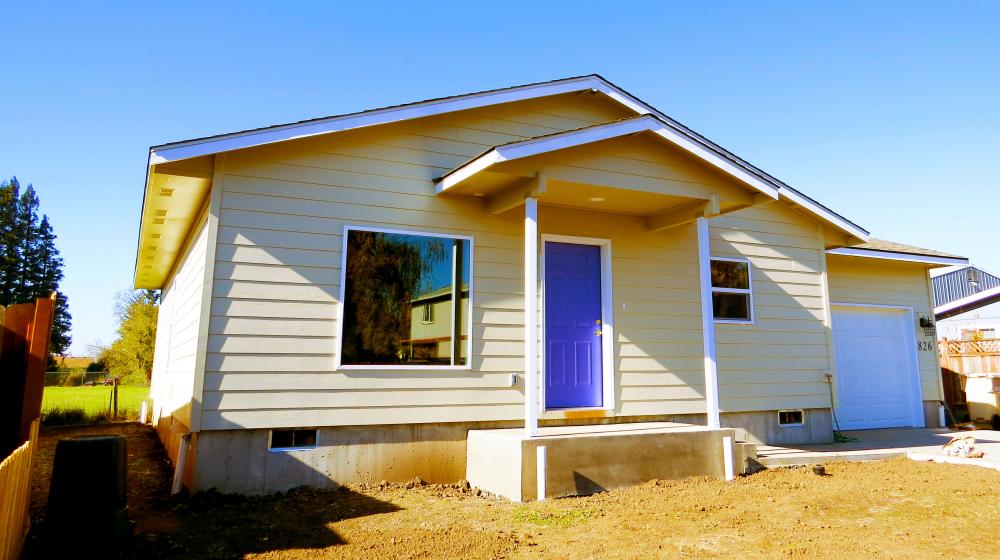
Donavan and Deborah Watts thought that, like their parents, they would never own their own home. But they were tired of the leaky roof, the water pump that sounded like a jet engine, and the strict landlord who would not allow them to plant a garden in front of their rented manufactured home. They applied for a home loan, but were approved for an amount so small they couldn’t use it to buy a house of any size.
When Donavan noticed a flyer at his work for the Habitat for Humanity Partner Family program, where homebuyers can reduce the cost of a house by contributing their own sweat equity to its construction, they decided to apply.
The Junction City/Harrisburg/Monroe (JCHM) Habitat in the southern Willamette Valley accepted them into the program. Habitat acquired a property in Harrisburg and built a new home, while the Watts contributed 500 hours of work on the home’s construction.
Habitat then partnered with USDA Rural Development to help the Watts get a mortgage. They were approved for a low-interest loan for the at-cost value of the home, with no down payment, through USDA’s Single Family Housing Program. JCHM Habitat provided a second mortgage for the difference between the at-cost and appraisal value, but for each month the Watts make an on-time mortgage payment to USDA, Habitat will waive their second mortgage payment. As a result, the Watts can pay roughly the same to own a home as they did for their rental.
Donavan and Deborah moved into their new home in the fall of 2017, becoming the first members of their family to own the land they live on. And they are well positioned to succeed as homeowners. Habitat provided free financial education to help them continue to improve their finances; the skills they learned from building their home will help them maintain it for years to come; and Habitat is answering their questions along the way. “We’re here to help them succeed in the long term,” said Cindy Decker, Executive Director of JCHM Habitat.
Owning a home has another benefit that means a lot to Deborah. “I get to plant my very own garden!” she said.
These first-generation homeowners now have greater financial security and stability for the long-term, and their experience has made them engaged community members who are now helping others as Habitat volunteers.

